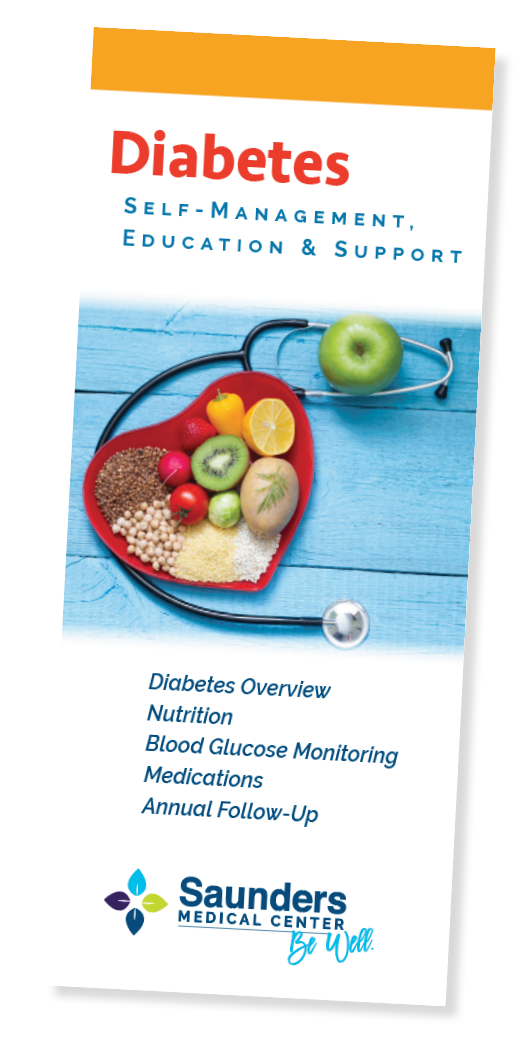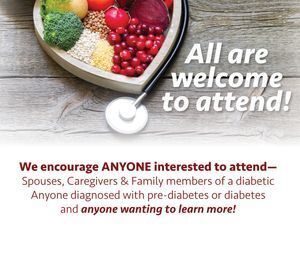Diabetes Self-Management Education & Support
A program offered at Saunders Medical Center, our health coaches assist patients with diabetes to better manage their condition.
LENGTH OF PROGRAM
The program is usually completed in 4 sessions lasting about one hour each. These sessions can be adjusted to best meet your individual needs.
TOPICS COVERED
- Healthy Eating/ Meal Planning/ Label Reading/ Challenges
- Managing Diabetes/ Activity/Medications/ Support
- Monitoring/ Managing Blood Glucose
- Complications/ Goals/ Emotions
IS THERE A COST?
The program is a benefit Medicare and most major commercial insurances offer. There may be a charge depending on your insurance plans coverage. Contact your insurer to identify your coverage.
Call the SMC Health Coaches to learn more at 402 443-4191.
Monthly Diabetic Support Meetings
No RSVP is required. Come learn what we can do. Or, ask your primary care provider for details of how a health coach could assist your blood sugar levels.
We look forward to helping you on this journey. Be Well.
What are NORMAL blood sugar levels? What is an A1C? An A1C, an average of your blood sugars over the last 3 months, can easily be tested along with your normal routine blood work. This test aids in your team determining how well your diabetes is controlled, and your best treatment options based on those results. An ideal goal for a diabetic would be to have an A1C of 6.5% per the American Diabetes Association (ADA).
Pre-Diabetes Defined Pre-diabetes means you have a higher-than-normal blood sugar level. It's not high enough to be considered type 2 diabetes yet. But without lifestyle changes, adults and children with prediabetes are at high risk to develop type 2 diabetes.
A1C value of: 5.7-6.4%
Fasting blood sugar of 100-125mg/dL
Want to identify if you are at risk of having pre-diabetes? Take the Test
We are Here To Help As Health Coaches, we have impacted the lives of hundreds since 2012. We have worked with patients with an A1C as high as 12%. After diligent teamwork with the nurses, providers and ultimately the patient, we have been able to reduce those patient’s A1C to less than 7%. Our care often involves once or twice weekly phone calls with our patients and adjusting their medications as needed while monitoring their diet and exercise.
With education and support, you can manage diabetes and change your life.




